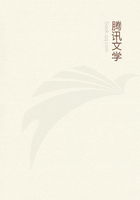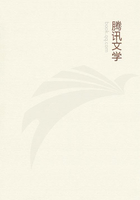Corollary--Hence it follows that all particular things are contingent and perishable. For we can have no adequate idea of their duration (by the last Prop.), and this is what we must understand by the contingency and perishableness of things (I. xxxiii., Note i.). For (I. xxix.), except in this sense, nothing is contingent.
XXXII. All ideas, in so far as they are referred to God, are true.
Proof--All ideas which are in God agree in every respect with their objects (II. ii. Cor.), therefore (I. Ax. vi.) they are all true. Q.E.D.
XXXII. There is nothing positive in ideas, which causes them to be called false.
Proof--If this be denied, conceive, if possible, a positive mode of thinking, which should constitute the distinctive quality of falsehood. Such a mode of thinking cannot be in God (II. xxxii.); external to God it cannot be or be conceived (I. xv.). Therefore there is nothing positive in ideas which causes them to be called false. Q.E.D.
XXXIV. Every idea, which in us is absolute or adequate and perfect, is true.
Proof--When we say that an idea in us is adequate and perfect, we say, in other words (II. xi. Cor.), that the idea is adequate and perfect in God, in so far as he constitutes the essence of our mind; consequently (II. xxxii.), we say that such an idea is true. Q.E.D.
XXXV. Falsity consists in the privation of knowledge, which inadequate, fragmentary, or confused ideas involve.
Proof--There is nothing positive in ideas, which causes them to be called false (II. xxxiii.); but falsity cannot consist in simple privation (for minds, not bodies, are said to err and to be mistaken), neither can it consist in absolute ignorance, for ignorance and error are not identical; wherefore it consists in the privation of knowledge, which inadequate, fragmentary, or confused ideas involve. Q.E.D.
*****Note--In the note to II. xvii. I explained how error consists in the privation of knowledge, but in order to throw more light on the subject I will give an example. For instance, men are mistaken in thinking themselves free; their opinion is made up of consciousness of their own actions, and ignorance of the causes by which they are conditioned. Their idea of freedom, therefore, is simply their ignorance of any cause for their actions. As for their saying that human actions depend on the will, this is a mere phrase without any idea to correspond thereto. What the will is, and how it moves the body, they none of them know; those who boast of such knowledge, and feign dwellings and habitations for the soul, are wont to provoke either laughter or disgust. So, again, when we look at the sun, we imagine that it is distant from us about two hundred feet; this error does not lie solely in this fancy, but in the fact that, while we thus imagine, we do not know the sun's true distance or the cause of the fancy. For although we afterwards learn, that the sun is distant from us more than six hundred of the earth's diameters, we none the less shall fancy it to be near; for we do not imagine the sun as near us, because we are ignorant of its true distance, but because the modification of our body involves the essence of the sun, in so far as our said body is affected thereby.
XXXVI. Inadequate and confused ideas follow by the same necessity, as adequate or clear and distinct ideas.
Proof--All ideas are in God (I. xv.), and in so far as they are referred to God are true (II. xxxii.) and (II. vii. Cor.) adequate; therefore there are no ideas confused or inadequate, except in respect to a particular mind (cf. II. xxiv. and xxviii.); therefore all ideas, whether adequate or inadequate, follow by the same necessity (II. vi.). Q.E.D.
XXXVII. That which is common to all (cf. Lemma II, above), and which is equally in a part and in the whole, does not constitute the essence of any particular thing.
Proof--If this be denied, conceive, if possible, that it constitutes the essence of some particular thing; for instance, the essence of B. Then (II. Def. ii.) it cannot without B either exist or be conceived; but this is against our hypothesis.
Therefore it does not appertain to B's essence, nor does it constitute the essence of any particular thing. Q.E.D.
XXXVIII. Those things, which are common to all, and which are equally in a part and in the whole, cannot be conceived except adequately.
Proof--Let A be something, which is common to all bodies, and which is equally present in the part of any given body and in the whole. I say A cannot be conceived except adequately.
For the idea thereof in God will necessarily be adequate (II. vii. Cor.), both in so far as God has the idea of the human body, and also in so far as he has the idea of the modifications of the human body, which (II. xvi., xxv., xxvii.) involve in part the nature of the human body and the nature of external bodies; that is (II. xii., xiii.), the idea in God will necessarily be adequate, both in so far as he constitutes the human mind, and in so far as he has the ideas, which are in the human mind.
Therefore the mind (II. xi. Cor.) necessarily perceives A adequately, and has this adequate perception, both in so far as it perceives itself, and in so far as it perceives its own or any external body, nor can A be conceived in any other manner. Q.E.D.
Corollary--Hence it follows that there are certain ideas or notions common to all men; for (by Lemma ii.) all bodies agree in certain respects, which (by the foregoing Prop.) must be adequately or clearly and distinctly perceived by all.
XXXIX. That, which is common to and a property of the human body and such other bodies as are wont to affect the human body, and which is present equally in each part of either, or in the whole, will be represented by an adequate idea in the mind.














